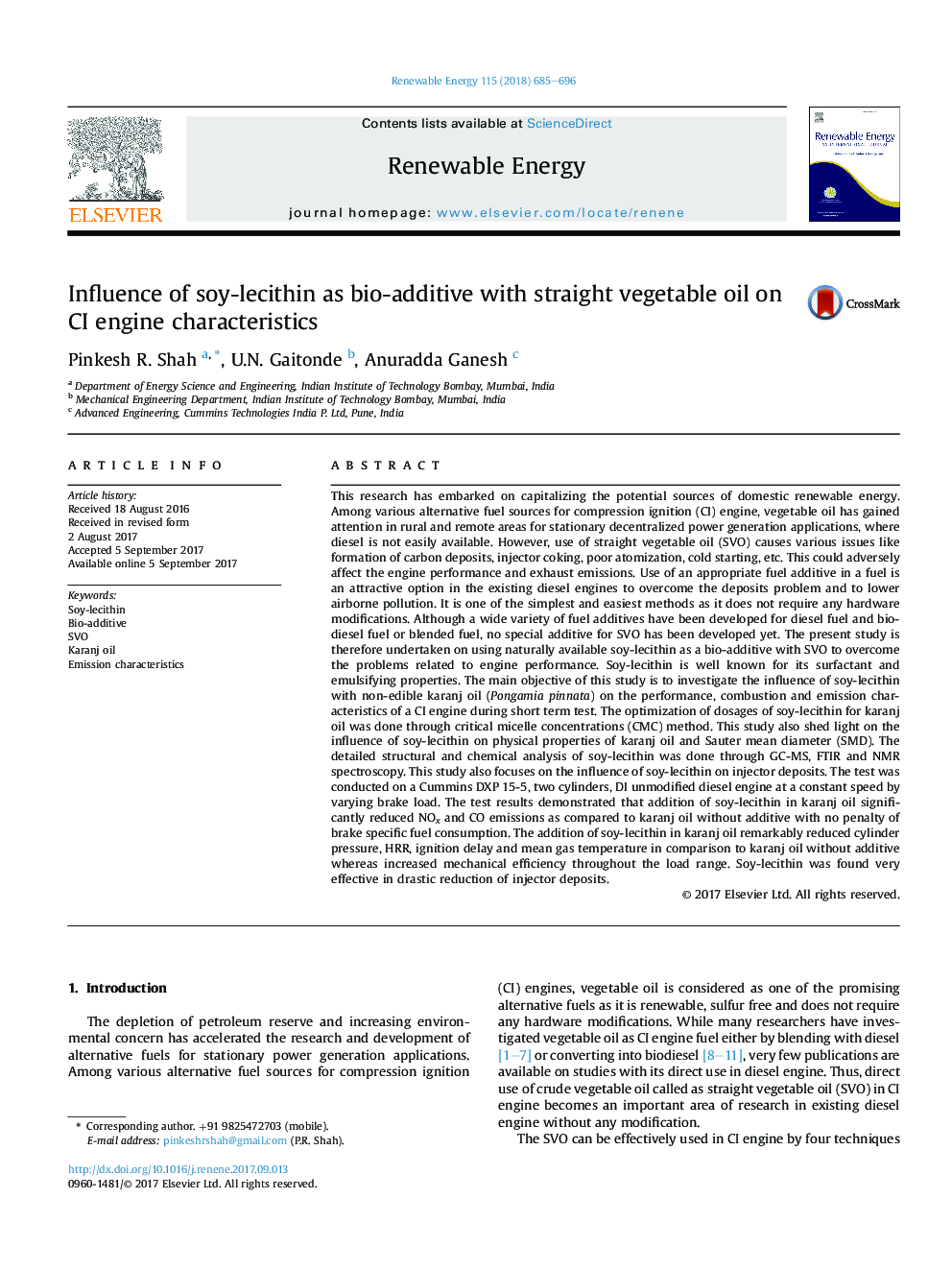| کد مقاله | کد نشریه | سال انتشار | مقاله انگلیسی | نسخه تمام متن |
|---|---|---|---|---|
| 4925996 | 1431590 | 2018 | 12 صفحه PDF | دانلود رایگان |

- A novel soy-lecithin as bio-additive with karanj oil (Pongamia pinnata) is introduced.
- Optimization of dosage is done through critical micelle concentration method.
- Study the influence of soy-lecithin as additive with SVO on CI engine characteristics.
- Soy-lecithin with non-edible karanj oil significantly reduced surface tension and SMD.
- Soy-lecithin with karanj oil reduced injector deposits and exhaust emissions notably.
This research has embarked on capitalizing the potential sources of domestic renewable energy. Among various alternative fuel sources for compression ignition (CI) engine, vegetable oil has gained attention in rural and remote areas for stationary decentralized power generation applications, where diesel is not easily available. However, use of straight vegetable oil (SVO) causes various issues like formation of carbon deposits, injector coking, poor atomization, cold starting, etc. This could adversely affect the engine performance and exhaust emissions. Use of an appropriate fuel additive in a fuel is an attractive option in the existing diesel engines to overcome the deposits problem and to lower airborne pollution. It is one of the simplest and easiest methods as it does not require any hardware modifications. Although a wide variety of fuel additives have been developed for diesel fuel and bio-diesel fuel or blended fuel, no special additive for SVO has been developed yet. The present study is therefore undertaken on using naturally available soy-lecithin as a bio-additive with SVO to overcome the problems related to engine performance. Soy-lecithin is well known for its surfactant and emulsifying properties. The main objective of this study is to investigate the influence of soy-lecithin with non-edible karanj oil (Pongamia pinnata) on the performance, combustion and emission characteristics of a CI engine during short term test. The optimization of dosages of soy-lecithin for karanj oil was done through critical micelle concentrations (CMC) method. This study also shed light on the influence of soy-lecithin on physical properties of karanj oil and Sauter mean diameter (SMD). The detailed structural and chemical analysis of soy-lecithin was done through GC-MS, FTIR and NMR spectroscopy. This study also focuses on the influence of soy-lecithin on injector deposits. The test was conducted on a Cummins DXP 15-5, two cylinders, DI unmodified diesel engine at a constant speed by varying brake load. The test results demonstrated that addition of soy-lecithin in karanj oil significantly reduced NOx and CO emissions as compared to karanj oil without additive with no penalty of brake specific fuel consumption. The addition of soy-lecithin in karanj oil remarkably reduced cylinder pressure, HRR, ignition delay and mean gas temperature in comparison to karanj oil without additive whereas increased mechanical efficiency throughout the load range. Soy-lecithin was found very effective in drastic reduction of injector deposits.
Journal: Renewable Energy - Volume 115, January 2018, Pages 685-696